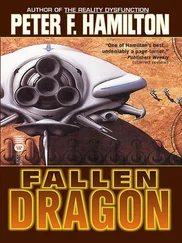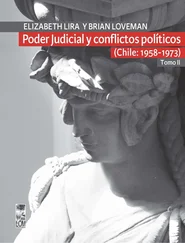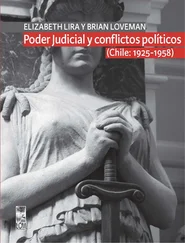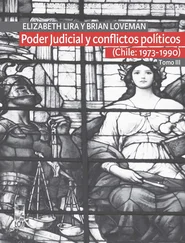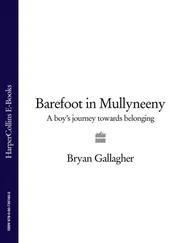by then, was his favourite television show.’
Monty Python’s Flying Circus landed on the unsuspecting viewers of BBC television in October 1969 to the accompaniment of a strident blare of brass-band music, the crushing descent of an animated foot and irreverent blowing of what in English slang is referred to as ‘a raspberry’. The circus troupe were five young writers and performers – John Cleese, Eric Idle, Terry Jones, Michael Palin and the late Graham Chapman – who set about revolutionising British comedy with the help of ingeniously quirky animations by American cartoonist, Terry Gilliam.
Over a period of five years Monty Python developed from an alternative (and decidedly subversive) late-night show that outraged and offended the easily-shocked into, firstly, an essential cult-classic and then, eventually, into a much-loved British institution. As a result of the Flying Circus, an entire generation grew up for whom comedy was defined by such phrases as, ‘Is this the right room for an argument?’, ‘Nudge, nudge, know what I mean, know what I mean!’ and the allpurpose, sketch-changing ‘And now for something completely different’ along with spam, flying sheep, silly walks, lumberjacks and a dead parrot.
What surprises Peter Jackson is not that Monty Python’s Flying Circus should have left its mark on his nascent creativity, but that he ever got to see it in the first place…
The one thing that, to this day, I’ve never quite fathomed out is how I was ever allowed to stay up late on a Sunday night and watch a programme like Monty Python’s Flying Circus! Although Dad loved comedy and had a great sense of humour, when it came to Python, he would sit through an entire show and never laugh.
I was not sure, initially, that I ever laughed out loud – partly because there were all kinds of innuendos that I probably didn’t pick up on, but also because it was so bizarre and off-beat: it was the weirdest comedy show ever and I had never seen anything like it in my life.
Because I saw the Flying Circus at just the right age – I was 11 or 12 years old and just starting to form adult sensibilities – it had a profound influence on the way in which my sense of humour developed. Monty Python taught me to love the ludicrous and love the extreme.
When, during my last year at primary school, we had to do a school project with our friends I decided that I was going to make a film. Getting together with some of my chums we put together a script. It was entitled, somewhat derivatively, Ponty Mython !
Heavily influenced – pretty much totally influenced – by Flying Circus it comprised skits from the TV series along with some of our own. I even tried to create some Terry Gilliam-style animations using cut-out pictures from magazines.
Ponty Mython ran for about twelve minutes and contained a sequence in which one of our teachers, Mr Shoesmith, was shown walking along with an umbrella and then suddenly exploding.
I had cut the film, substituted Mr Shoesmith with a homemade bomb – made from firecrackers and flour – which I then detonated so that it looked like he had blown up!
I even remember details of my first-ever movie budget: four rolls of Super 8 film at $3 NZ a roll to buy and process; total cost $12 NZ. We screened it at school over several lunch times – it always got a big cheer when Mr Shoesmith exploded! – and we charged 10 cents admission. We made exactly $12! No going over-budget, but no profit either! But at least we broke even…
Monty Python would continue to be a powerful influence on Peter and his love of ‘splatter that would eventually inspire his first commercial movies, was really borne out of a sketch from the third season of Flying Circus. Called ‘Sam Peckinpah’s “Salad Days”’, it imagined what might have happened if the American director of such uncompromising movies as The Wild Bunch and the then recently-released Straw Dogs had made a film of Julian Slade’s Fifties musical Salad Days.
The result is an English country house-party that unexpectedly turns into a fevered gore-fest. Beginning innocently enough with someone playing a piano on a lawn and lads in blazers and flannels and girls in pretty frocks frolicking about to the music, things start going wrong when the bright young things embark on a game of tennis: someone is hit in the eye with a tennis-ball; a girl gets a racquet embedded in her stomach; another person’s arm is ripped off; the piano-lid drops, severing the pianist’s hands and causing fountains of blood to erupt from the stumps. Finally, the piano collapses in slow-motion, crushing everyone to death and the grisly debacle concludes with a shot in which, as the script tastefully puts it, ‘a volcanic quantity of blood geysers upwards.’
It was Python at its most outrageous: defiantly unapologetic, even down to the on-screen ‘Apology’: THE BBC WOULD LIKE TO APOLOGISE TO EVERYONE IN THE WORLD FOR THE LAST ITEM. IT WAS DISGUSTING AND BAD AND THOROUGHLY DISOBEDIENT AND PLEASE DON’T BOTHER TO PHONE UP BECAUSE WE KNOW IT WAS VERY TASTELESS, BUT THEY DIDN’T REALLY MEAN IT AND THEY DO ALL COME FROM BROKEN HOMES AND HAVE VERY UNHAPPY PERSONAL LIVES…’
I remember watching that episode on TV and being absolutely gobsmacked. Quite simply, it was the most extraordinarily funny thing that I’d ever seen. That sketch did more to steer my sense of humour towards over-the-top bloodletting than any horror film ever did! My splattermovies – Bad Taste, Meet the Feebles and Braindead – owe as much to Monty Python as they do to any other genre. It is about pushing humour to the limit of ludicrousness, the furthest and most absurd extreme imaginable – so extreme that the only possible response to it is to laugh because there is nothing else left to do!
In 1975, Peter moved on to secondary education, attending Kapiti College, located north of Pukerua Bay at Raumati Beach, where he demonstrated an exceptional aptitude for maths, a complete lack of skill (or interest) in sport and where he was variously perceived by his peers, some of whom have described him as being painfully shy with an awkward stammer, as a boy who was so retiring, remote and self-effacing that he went all but unnoticed by teachers and fellow pupils. Others, who shared his passionate excitement for movies, saw beyond the shyness and the occasional stutter and found him an entertaining, intriguing, slightly eccentric character.
‘You would never have called Peter “a leader of men”,’ says one friend, ‘and yet we all followed him around! He came up with ideas, schemes and enterprises and we went along with them, took part, got involved. People have said he was reserved and lacking in self-confidence and he could, sometimes, give that impression – he rarely made vocal contributions in class – but he had massive self-confidence in his ideas and abilities. In that sense, you would not describe Peter as modest. I believe he always knew that he was going to be special, that he would have a charmed life…’
To his close mates, Peter was often the joker: pulling stunts and gags. ‘He was totally lunatic!’ remembers Pete O’Herne. ‘We went into town one day and we got off the bus in Wellington and, as soon as it had driven away, Peter suddenly said, “Oh my God, Pete, where’s your bag?” I start panicking, thinking, ‘I’ve lost my bag! I’ve left it on the bus…’ And then I realised, for Christ’s sakes, that I’m actually holding the bag in my hand! And there’s Peter, laughing like hell!’
There were also occasional trips to see a live taping of a TV comedy show: ‘Oh dear, oh dear,’ laughs Pete, ‘there we’d be in the audience – these guys from the loony-left, of the school of Python – watching some normal, mainstream comedy show that really just couldn’t do it for us! So, Peter and I would start hee-hawing away, making up the loudest, silliest, high-pitched laughs and crazy demented sounds. Then we’d watch the show on transmission and spot ourselves on the soundtrack which was easy because we were always way over the top for the kind of jokes in the show.’
Читать дальше


